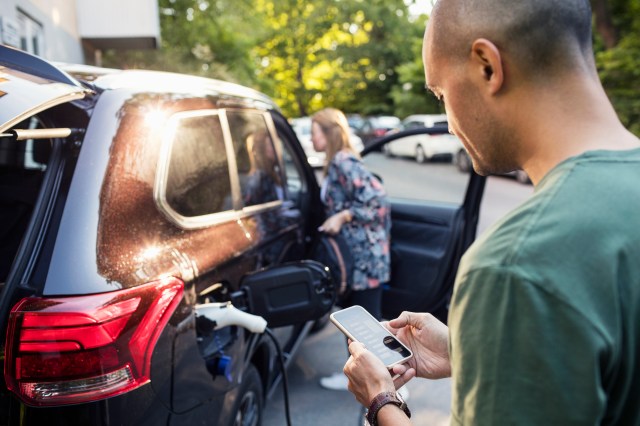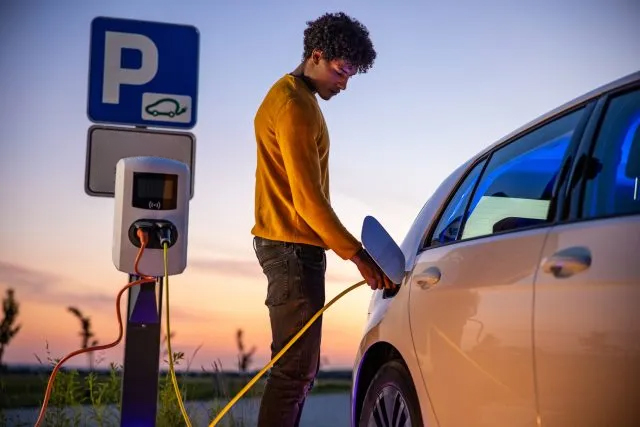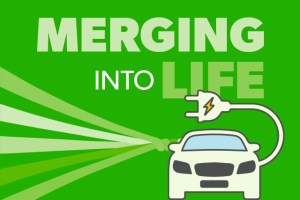Almost one-third of millennials, the generation spanning ages 27 to 42, said the next time they go car shopping, they likely will come home with an electric car, according to the AAA 2023 EV Customer Sentiment Survey.
The survey results, released in November, revealed that 31% of millennials said an EV would most likely be their next car.
At the same time, the familiar misgivings about buying and owning an EV persist across all age groups.
EVs = Prestige
Other studies support millennial leanings. Millennial consumers rank the highest (72%) when it comes to considering purchasing an EV and the largest percentage of those who say they are “very likely” to consider an EV (37%), according to the J.D. Power 2023 U.S. Electric Vehicle Consideration Study.
Some reports suggest that millennials are attracted to EVs by a desire for status, as well as to showcase affluence, as some EVs are seen as more prestigious than luxury gas-powered vehicles. The trend is more prevalent in cities, where there is greater access to charging stations. And for some, EVs are a better fit for their lifestyle. For those living in a house, it’s possible to install a charging station, allowing EV owners to anticipate long-term savings over the life of the car.
Elsewhere, research in Vietnam indicated that millennials there are shaping up to be the primary consumers of electric vehicles, in part because they are particularly attuned to state-of the-art technology.
Gen Z Not Far Behind
The Generation Z demographic, those born between 1997 and 2012, showed the second most interest in buying an EV. Baby Boomers, born between 1946 and 1964, were not far behind, with 18% saying they would buy a fully electrical vehicle for their next car.
Overall, 23% of U.S. adults said they would be likely or highly likely to purchase a fully electric vehicle the next time they buy a car. This was down slightly from 25% in 2022.
Environmental concerns (60%) and lower operating costs than a gas-powered car (76%) remain the primary motivators for purchasing EVs, though, 38% of Baby Boomers cited cutting-edge technology as a reason for an EV purchase.

Charging Concerns Persist
Consumers continue to list the same obstacles to EV ownership year after year. According to the AAA survey respondents, EVs cost too much, (59%), there are too few convenient places to charge them (56%), the cost of battery repair or replacement is too high (55%), and they fear running out of power while driving (53%).
An EV “ceiling” has developed, blocking increased adoption, Greg Bannon, director of automotive engineering research for AAA, wrote in a guest commentary for Automotive News. Despite lower prices and an increase in models to choose from, sales are stagnating, Bannon wrote. Consumers like the idea of owning one, but they are not convinced an EV is compatible with their lifestyle.
To punch through that ceiling, people may need to own two cars, an EV and a hybrid or gas-powered car, so they are confident they can take longer trips when they need to, he said. Drivers also can test the EV experience with a hybrid, Bannon noted. And to really boost EV sales, public charging stations need to dot the landscape.
“If we want to move the needle on EV interest and adoption, public charging must become more accessible, reliable, affordable and convenient,” said Bannon.
The J.D. Power study also warned that without more public charging stations and supporting infrastructure, EV momentum could stall further.
This is the sixth year AAA has administered the survey. It conducted 1,170 interviews, mostly online, with U.S. adults ages 18 and older in March 2023.
For more information about EVs, visit AAA’s EV website.
How likely are you to purchase an EV for your next car? Tell us in the comments.
2 Thoughts on “Millennials Are 31% More Likely To Buy EVs”
Leave A Comment
Comments are subject to moderation and may or may not be published at the editor’s discretion. Only comments that are relevant to the article and add value to the Your AAA community will be considered. Comments may be edited for clarity and length.















Are they thinking about ecology of the future worn-out batteries?
Boomer here, but unlike a number of my contemporaries I’ve spent a large portion of my professional life involved with tech. It has become obvious to me that electric cars are indeed the future, internal combustion engines will soon be obsolete, and despite a few early hiccups, concerns about charging infrastructure, and some unsavory aspects of the manufacturing process (e.g. labor conditions where elements essential to lithium-ion batteries are mined), we will soon all be driving some sort of electric vehicle.
And this will be a Good Thing (see 1066 And All That) – emission reductions, lower maintenance, and more centralized energy production will be great for the quality of our lives, and improve the chances of our species surviving the next several centuries.
My concern right now is that as I see it, we are only in the very beginning of the process of switching over to electric cars, there is a lack of standardization RE parts and technologies, and a cross-country trip would require a good deal of planning RE charging. So I will probably hang on to my current jalopy for another year or two or three, until I can get a better idea as to where the industry is headed. But an electric car is definitely in my future.